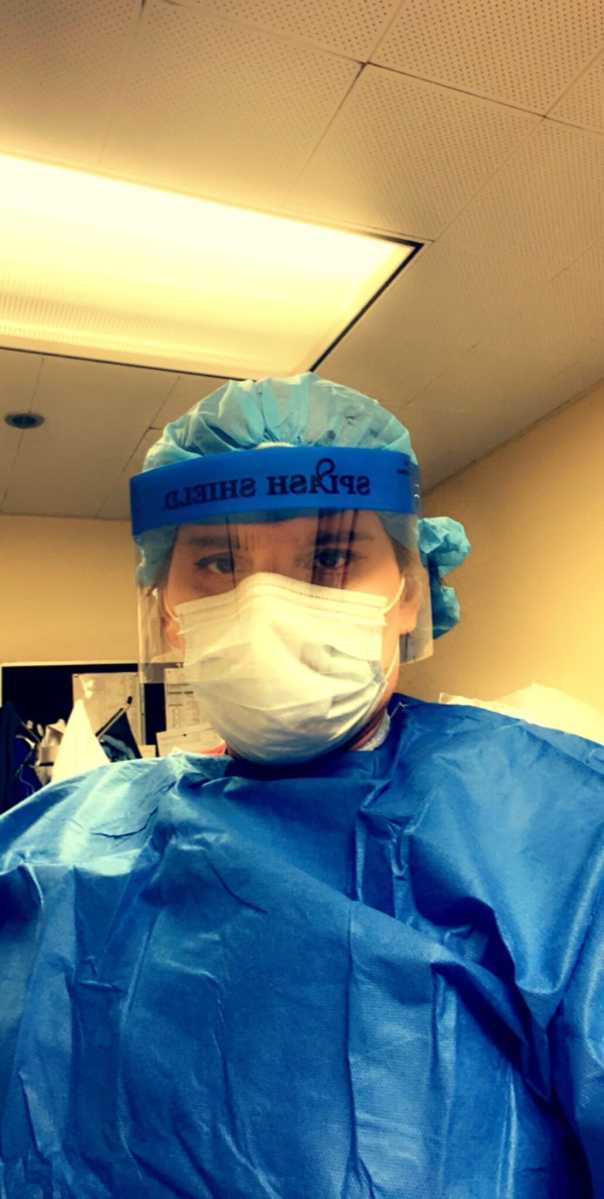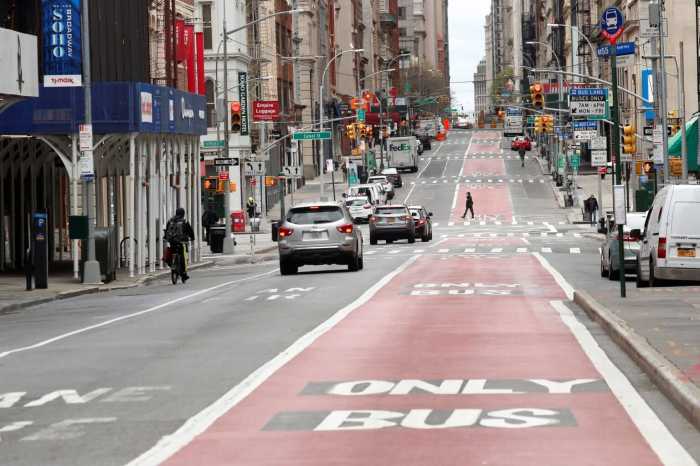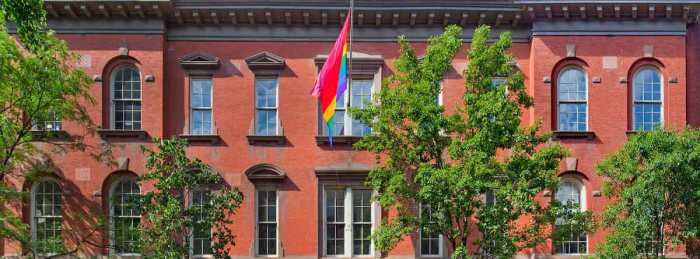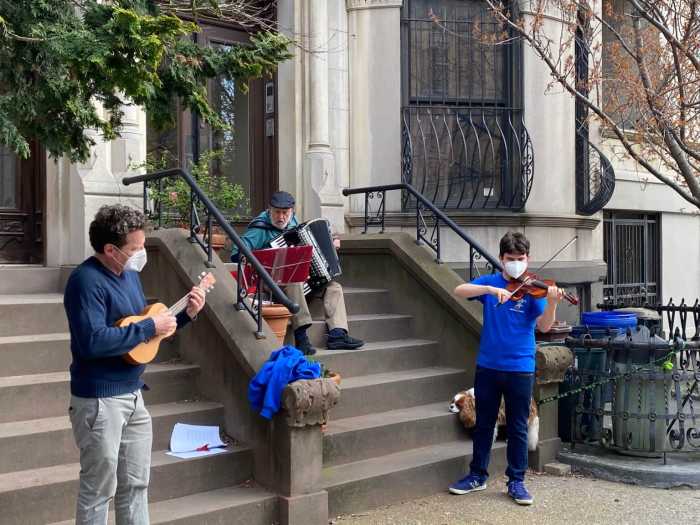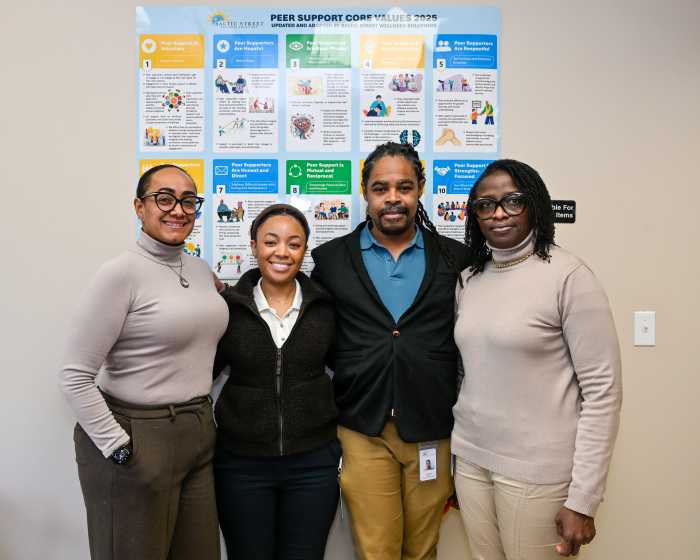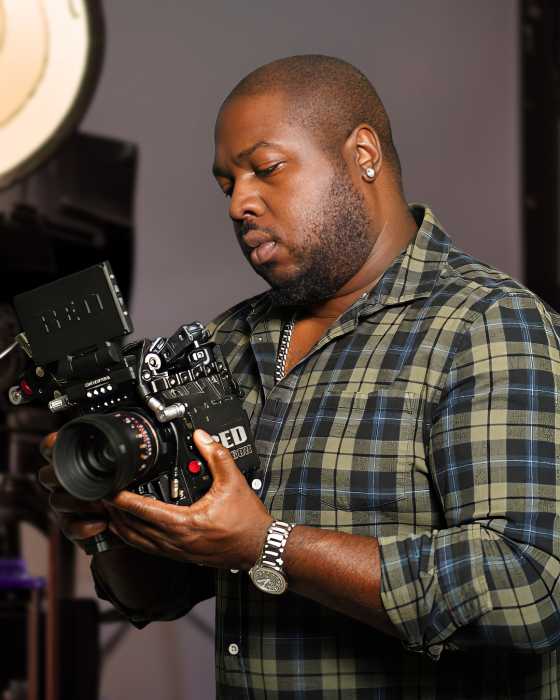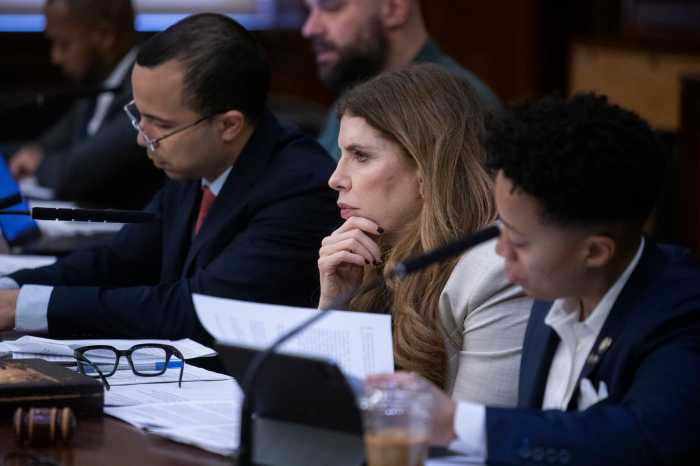Ashley Phillips spends her weekdays as a coordinator of advocacy and outreach at Gay Men’s Health Crisis (GMHC), but when the work day is over, you can find her in the basement at Lincoln Hospital in the Mott Haven section of the Bronx.
For the past month, Phillips has dedicated her evenings and weekends to volunteering at the hospital’s morgue, sacrificing her free time to take on a role she never expected — and one she didn’t know she could tolerate.
But now, Phillips, who says she thinks of herself as “the only trans person who has ever wanted to work in the morgue,” is at the hospital seven days a week, sometimes working alone, organizing bodies of individuals who succumbed to the coronavirus. The virus put such a sudden strain on hospitals that officials were struggling to keep up with demand. Hospital staff accustomed to seeing just two deaths a week were suddenly seeing 20 a week.
That’s where Phillips stepped in and sought to right the ship.
“I went in and noticed it was chaotic,” Phillips said, describing her first day volunteering at the morgue. She was first tasked with setting up inventory. “It was not structured and I can’t work without structure. It was just bodies put in there, with wrong names on the outside of bags.”
Phillips said she took matters into her own hands, establishing an organized workflow structure, complete with Microsoft Excel spreadsheets, and reporting back to a central office to coordinate the morgue’s operations.
Phillips offered a glimpse into the important volunteer work that is being carried out behind the scenes, far away from the spotlight. On a given whirlwind of a night, she is identifying bodies by making sure the name on the outside of the bag matches the name on the individual’s armband. At the same time, a half-dozen additional bodies fill into the morgue, all while an announcement blares from the loudspeaker with the much more uplifting news that a patient upstairs at the hospital survived coronavirus. That cycle goes on until midnight on weekdays — after Phillips works at GMHC all day — and she volunteers there all day on weekends.
“One night I was there all by myself when they brought down five bodies, and I was like, ‘Wow,’” Phillips recalled. “The next day the boss came in and said, ‘How was last night? Five bodies? Are you okay?’ I did what I had to do, but who would expect — I learned how to operate a morgue in five minutes.”
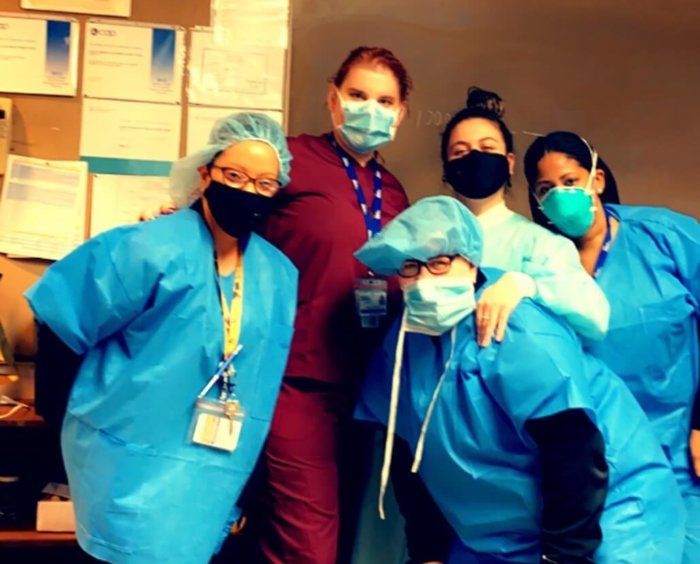
Phillips’ work in this volunteer capacity goes even further. She works with social workers and other morgue and hospital staff, and she has strived to maintain the morgue in such a way that it fosters a more seamless transition for the families of coronavirus patients who have died.
“The systems are in place and it is working,” she said. “[We] know where people are when families call. There is no searching for bodies and looking on the shelves.”
Phillips plans to continue the volunteer gig for as long as she is needed, which will almost certainly be determined by the course of the virus and whether it keeps testing the limits of hospitals. Cases, hospitalizations, and deaths in New York City have all declined in recent weeks, but warmer weather has drawn larger crowds outdoors and some regions of the country have already started re-opening, raising fears that the virus could again spread.
No matter how long it takes, Phillips is so committed to her effort that she rarely ever takes a day off. Why she remains so driven and devoted to the opportunity is evident in the way she describes the importance of helping others during an unprecedented, all-hands-on-deck crisis that has especially left a disproportionate impact on New York City.
“Is it easy volunteering in the morgue? I thought it wouldn’t be easy, but you get used to it,” Phillips stated..
During her interview with Gay City News, Phillips made it a point to heap praise on those who have traveled from elsewhere to help New Yorkers during a crisis that is continuing to ravage the city. But the city also wouldn’t get by without the help of local volunteers like Phillips, who has been able to look past the unpleasant side of working in a morgue in order to make a difference in her community.
“You have to treat the dead with respect and you have to make sure things are getting done,” she said. “I’m okay with working in the morgue.”

